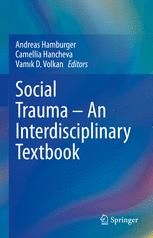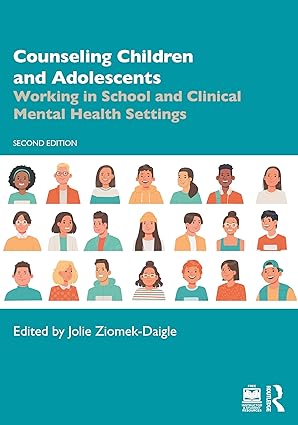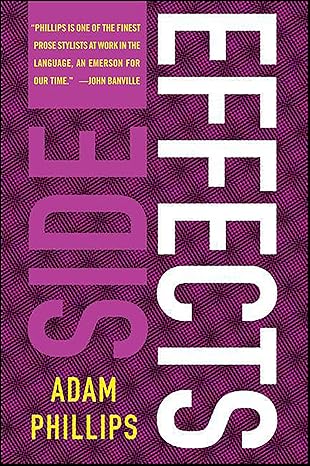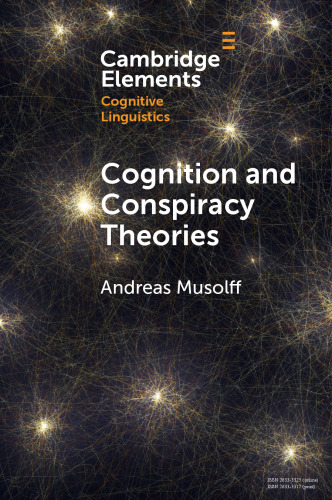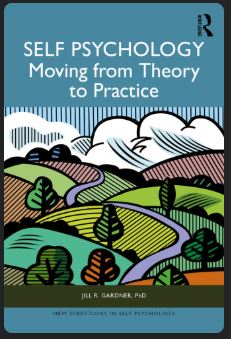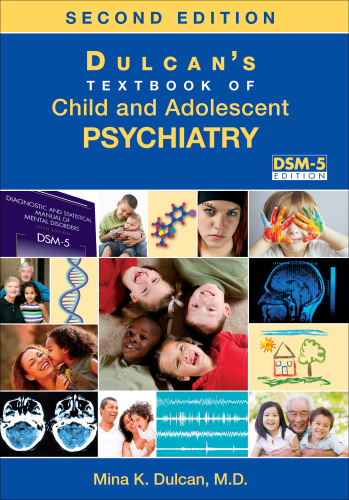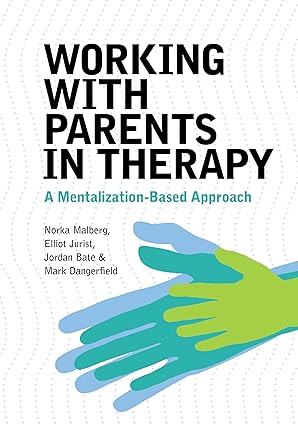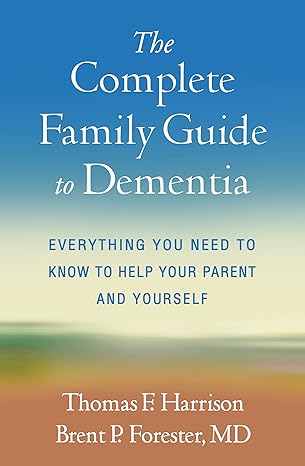Introduction: Background and Main Theoretical Concepts/Discussions Social trauma is a clinical as well as a sociopsychological category: (1) as a clinical category it defines a group of posttraumatic disorders caused by organized societal violence or genocide where a social group is the target of planned persecution and therefore not only the individual but also its social environment is afflicted. Therefore, the concept of social trauma also describes (2) the shadowing of the original trauma on long-term social processes, be it on the family, group, or inter-group level. 1.1.1 Clinical Theories of Trauma and Posttraumatic Conditions Posttraumatic disorders are the only DSM diagnosis defined by an external event. However, the types of traumatizing events are poorly distinguished; especially, post- social-traumatic disorders are not addressed in the diagnostic manuals (see Hamburger, 2020b, this volume). Trauma-related mental illness in general, well known in history, was (re-)acknowledged only lately by rational medicine (Hamburger, 2018c; Kucmin, Kucmin, Nogalski, Sojczuk, & Jojczuk, 2016; Ray, 2008). This picture has changed in the late twentieth century, when the acknowledgment of posttraumatic stress disor- der (PTSD), along with its behavioral definition in DSM III, led to a clear-cut diagno- sis, but in the same place provoked a steadily widening, even inflationary use of the trauma concept (Kirmayer, Kienzler, Afana, & Pedersen, 2010; Prager, 2011). A. Hamburger (*) International Psychoanalytic University Berlin, Berlin, Germany e-mail: andreas.hamburger@ipu-berlin.de © Springer Nature Switzerland AG 2021 A. Hamburger et al. (eds.), Social Trauma – An Interdisciplinary Textbook, https://doi.org/10.1007/978-3-030-47817-9_1 4 The classical psychoanalytic trauma theory evolved from Freud’s early adoption and subsequent rejection of child abuse as the core of hysteria, followed by Ferenczi’s concepts of war trauma and child abuse (Hamburger, 2018a), and eventu- ally to a modern psychoanalytic trauma theory that includes the social implications of trauma. There was, however, a remarkable delay in integrating the experience of the Shoah as a massive social trauma into the general psychoanalytic trauma theory (for details, see Hamburger, 2020a, 2020b, this volume; Bohleber, 2007). Beyond the psychoanalytic discourse, clinical research like Kira’s attempts to build a taxonomy of trauma (Kira, 2001) and research on differentiation of trau- matic reactions by type of exposure shift the focus of clinical trauma studies from a merely behavioral approach to an increasing awareness of social conditions (dis- cussed in Hamburger, 2020a, this volume). But still, clinical theories of trauma—besides genocide studies, where the social factor is usually at the center)—often suffer from an individualistic bias, as they rarely take into account that traumatizing events occur in the inter-individual and inter-group space
چکیده فارسی
مقدمه: پیشینه و مفاهیم/مباحث نظری اصلی ترومای اجتماعی یک مقوله بالینی و روانشناختی اجتماعی است: (1) به عنوان یک مقوله بالینی، گروهی از اختلالات پس از سانحه ناشی از خشونت اجتماعی سازمان یافته یا نسل کشی را تعریف می کند. هدف آزار و اذیت برنامه ریزی شده است و بنابراین نه تنها فرد، بلکه محیط اجتماعی آن نیز مبتلا می شود. بنابراین، مفهوم آسیب اجتماعی همچنین (2) سایه ترومای اصلی را بر فرآیندهای اجتماعی بلندمدت، چه در سطح خانواده، گروه، یا بین گروهی توصیف می کند. 1.1.1 نظریه های بالینی تروما و شرایط پس از سانحه اختلالات پس از سانحه تنها تشخیص DSM هستند که توسط یک رویداد خارجی تعریف می شوند. با این حال، انواع رویدادهای آسیب زا به خوبی تشخیص داده نمی شوند. به خصوص، اختلالات پس از سانحه اجتماعی در دستورالعمل های تشخیصی مورد توجه قرار نگرفته اند (به هامبورگر، 2020b، این جلد مراجعه کنید). بیماری روانی مربوط به تروما به طور کلی، که در تاریخ به خوبی شناخته شده است، تنها اخیراً توسط طب عقلانی (همبرگر، 2018c؛ Kucmin، Kucmin، Nogalski، Sojczuk، و Jojczuk، 2016؛ ری، 2008) (دوباره) تایید شده است. این تصویر در اواخر قرن بیستم تغییر کرد، زمانی که اذعان به اختلال استرس پس از سانحه (PTSD)، همراه با تعریف رفتاری آن در DSM III، منجر به یک تشخیص واضح شد، اما در همان مکان به طور پیوسته برانگیخت. استفاده گسترده و حتی تورمی از مفهوم تروما (کیرمایر، کینزلر، آفانا، و پدرسن، 2010؛ پراگر، 2011). A. Hamburger (*) دانشگاه بین المللی روانکاوی برلین، برلین، آلمان ایمیل: andreas.hamburger@ipu-berlin.de © Springer Nature Switzerland AG 2021 A. Hamburger et al. (ویرایشها)، ترومای اجتماعی – کتاب درسی بینرشتهای، https://doi.org/10.1007/978-3-030-47817-9_1 4 نظریه کلاسیک آسیب روانکاوی از پذیرش اولیه فروید و پس از آن رد کودک آزاری به عنوان هسته هیستری، به دنبال مفاهیم فرنسی از ترومای جنگ و کودک آزاری (همبرگر، 2018a)، و در نهایت به یک نظریه ترومای روانکاوانه مدرن که شامل پیامدهای اجتماعی تروما است. با این حال، تأخیر قابل توجهی در ادغام تجربه Shoah به عنوان یک آسیب اجتماعی عظیم در نظریه عمومی ترومای روانکاوانه وجود داشت (برای جزئیات، نگاه کنید به Hamburger, 2020a, 2020b, این جلد؛ Bohleber, 2007). فراتر از گفتمان روانکاوی، تحقیقات بالینی مانند تلاش های کیرا برای ایجاد طبقه بندی تروما (کیرا، 2001) و تحقیق در مورد تمایز واکنش های تروماتیک بر اساس نوع مواجهه، تمرکز مطالعات تروما بالینی را از رویکرد صرفاً رفتاری به افزایش آگاهی تغییر می دهد. شرایط اجتماعی (مورد بحث در هامبورگر، 2020a، این جلد). اما با این حال، نظریههای بالینی تروما - علاوه بر مطالعات نسلکشی، که معمولاً عامل اجتماعی در مرکز است) - اغلب از یک سوگیری فردگرایانه رنج میبرند، زیرا به ندرت به این نکته توجه میکنند که رویدادهای آسیبزا در فضای بین فردی و بین گروهی رخ میدهند.
ادامه ...
بستن ...
Introduction: Background and Main Theoretical Concepts/Discussions Social trauma is a clinical as well as a sociopsychological category: (1) as a clinical category it defines a group of posttraumatic disorders caused by organized societal violence or genocide where a social group is the target of planned persecution and therefore not only the individual but also its social environment is afflicted. Therefore, the concept of social trauma also describes (2) the shadowing of the original trauma on long-term social processes, be it on the family, group, or inter-group level. 1.1.1 Clinical Theories of Trauma and Posttraumatic Conditions Posttraumatic disorders are the only DSM diagnosis defined by an external event. However, the types of traumatizing events are poorly distinguished; especially, post- social-traumatic disorders are not addressed in the diagnostic manuals (see Hamburger, 2020b, this volume). Trauma-related mental illness in general, well known in history, was (re-)acknowledged only lately by rational medicine (Hamburger, 2018c; Kucmin, Kucmin, Nogalski, Sojczuk, & Jojczuk, 2016; Ray, 2008). This picture has changed in the late twentieth century, when the acknowledgment of posttraumatic stress disor- der (PTSD), along with its behavioral definition in DSM III, led to a clear-cut diagno- sis, but in the same place provoked a steadily widening, even inflationary use of the trauma concept (Kirmayer, Kienzler, Afana, & Pedersen, 2010; Prager, 2011). A. Hamburger (*) International Psychoanalytic University Berlin, Berlin, Germany e-mail: andreas.hamburger@ipu-berlin.de © Springer Nature Switzerland AG 2021 A. Hamburger et al. (eds.), Social Trauma – An Interdisciplinary Textbook, https://doi.org/10.1007/978-3-030-47817-9_1 4 The classical psychoanalytic trauma theory evolved from Freud’s early adoption and subsequent rejection of child abuse as the core of hysteria, followed by Ferenczi’s concepts of war trauma and child abuse (Hamburger, 2018a), and eventu- ally to a modern psychoanalytic trauma theory that includes the social implications of trauma. There was, however, a remarkable delay in integrating the experience of the Shoah as a massive social trauma into the general psychoanalytic trauma theory (for details, see Hamburger, 2020a, 2020b, this volume; Bohleber, 2007). Beyond the psychoanalytic discourse, clinical research like Kira’s attempts to build a taxonomy of trauma (Kira, 2001) and research on differentiation of trau- matic reactions by type of exposure shift the focus of clinical trauma studies from a merely behavioral approach to an increasing awareness of social conditions (dis- cussed in Hamburger, 2020a, this volume). But still, clinical theories of trauma—besides genocide studies, where the social factor is usually at the center)—often suffer from an individualistic bias, as they rarely take into account that traumatizing events occur in the inter-individual and inter-group space
ادامه ...
بستن ...
